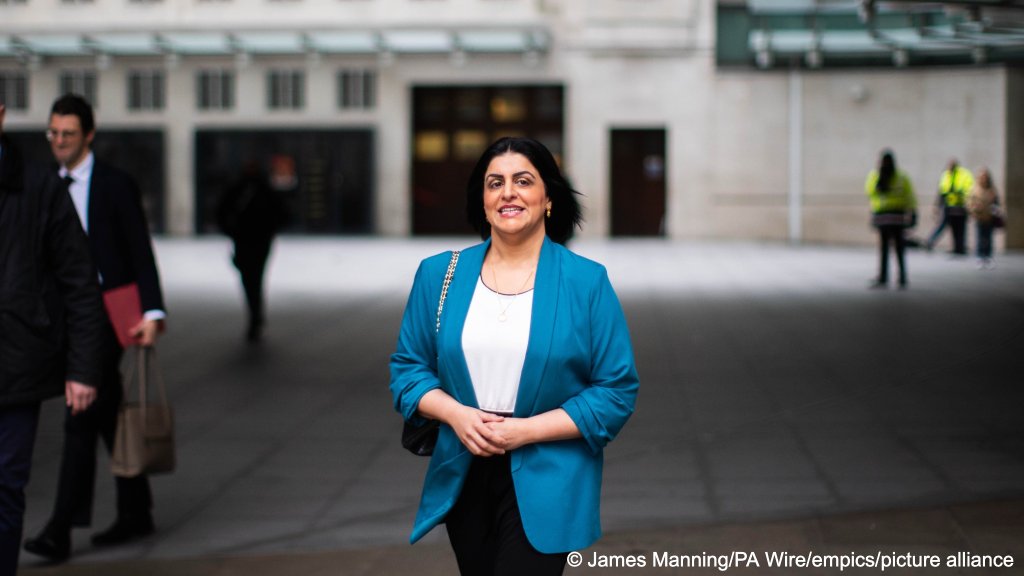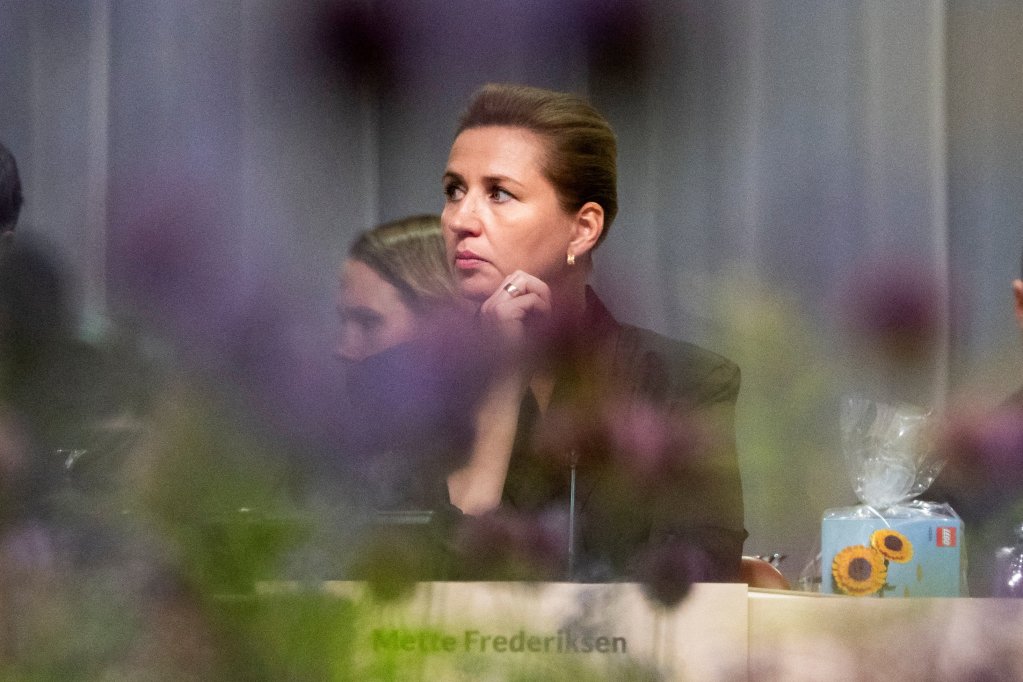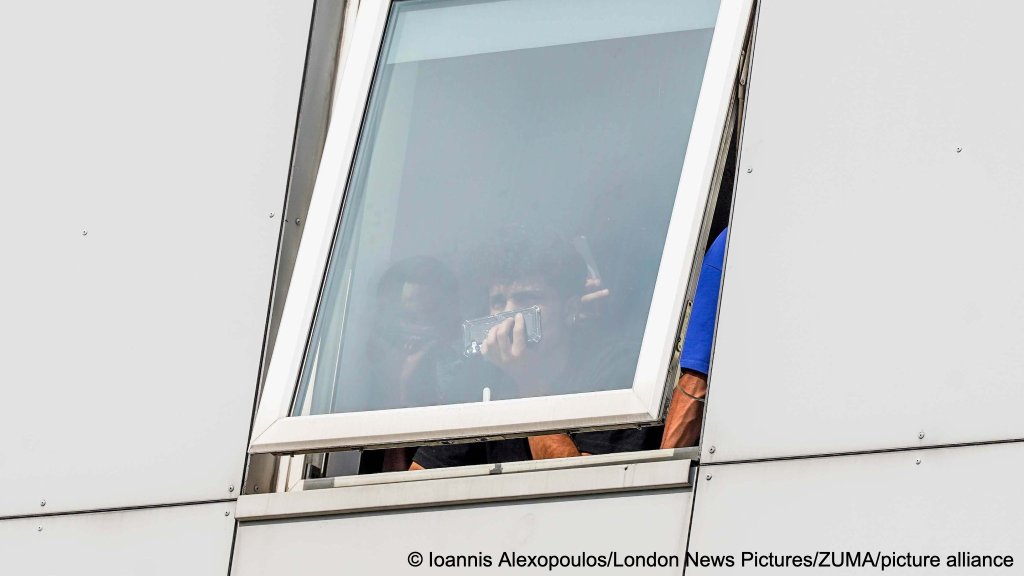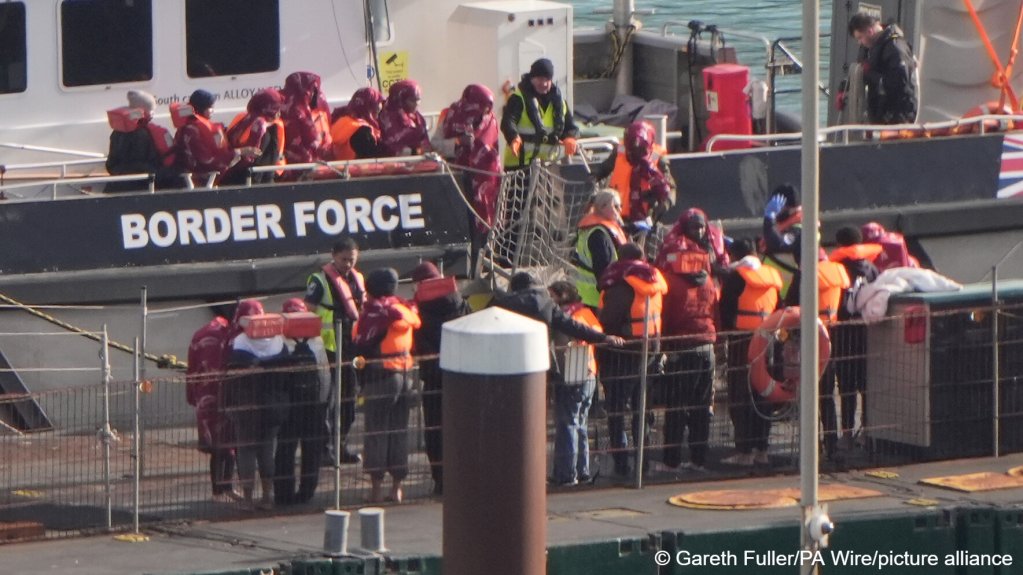Temporary refugee status, visa bans and new limits on rights. Britain’s toughest asylum reforms in a generation land as Labour battles internal revolt and pressure from the far right.
The government is preparing to unveil the most dramatic overhaul of the UK’s asylum system in decades, as home secretary Shabana Mahmood sets out sweeping reforms inspired by Denmark’s hardline model.
Mahmood, who describes herself as "the child of migrants," insists irregular migration has become so politically and socially destabilizing that decisive action is required. She frames the reforms as a "moral mission," rejecting accusations from Labour colleagues and rights groups that she is adopting far-right rhetoric.
In Parliament on Monday (November 17), while announcing the plans to assembled Members of Parliament (MPs), Mahmood said her aim was to "restore order to the border, so we can be the open tolerant country, we know this country can be."

Later, apparently echoing the former Conservative government, she called the asylum system "broken," promising to fix it with her new policies.
'Illegal migration is tearing our country apart'
"Illegal migration is tearing our country apart," Mahmood told the BBC on Sunday (November 16). "People can see huge pressure in their communities and they can also see a system that is broken, and where people are able to flout the rules, abuse the system and get away with it."
Mahmood reinforced her message on X, stating "I know this country is an open, tolerant and generous place. But the public also rightly expect that we can control our borders."
Her intervention comes amid acute political turbulence for the Labour government. Immigration has overtaken the economy as the public’s top concern, the anti-migrant party Reform UK is gaining ground in polls, and Labour is mired in a leadership row, with MPs accusing the government of "chasing Reform" by hardening its stance.
Mahmood’s reforms seek to reset Britain’s asylum regime entirely -- making refugee protection temporary, conditional and continuously reviewable, restricting human-rights appeals and reducing support for thousands of people seeking refuge.
Read AlsoMan deported for the second time after returning to UK, testing 'one in, one out' deal
A shift to temporary protection
Under the new system, anyone granted asylum will receive only 30 months of protection, reviewed every two and a half years. The path to permanent settlement -- previously five years -- will stretch to 20 years. Those who arrive through "safe and legal routes," find work and contribute to society may qualify earlier, though the government has not specified how.
The model is inspired by Denmark’s center-left Social Democrats, led by Danish Prime Minister Mette Frederiksen, who have introduced some of Europe's toughest asylum rules. Home Office officials were sent to Copenhagen to study a system built on rolling reviews, swift returns when countries are deemed safe, and strict limits on family reunification.

Danish Foreign Minister Lars Løkke Rasmussen defended the policy, saying it was designed partly to "send a message to the human smugglers that you shouldn’t prefer Denmark." But rights groups warn the model fosters fear and insecurity. As one Syrian refugee under Denmark’s temporary system put it: "You rebuild everything, while knowing it can be taken away at any moment."
Mahmood argues Britain’s current rules -- which allow most refugees to apply for settlement after five years -- act as a "pull factor" exploited by smugglers.
Read AlsoUK announces tougher requirements for migrant settlement
Support cutbacks and tougher conditions
Another major change, proposed by Mahmood, is the abolition of the statutory duty, introduced in 2005, to provide basic housing and subsistence to certain asylum seekers.
Under the plans:
- Accommodation and allowances will become discretionary
- Asylum seekers with the right to work who do not take employment can lose support
- Those who break the law may be refused housing
- Priority will go to those "contributing to the economy and local communities"
Mahmood says criminal gangs market UK hotels and benefits as part of "packages" sold to potential migrants. Critics dispute this and warn that withdrawing support risks forcing people into destitution and exploitation.

The shift mirrors Denmark's approach, which ties residency and welfare access to employment, contribution and good behavior. In Denmark, refugees can lose the right to stay if they rely on benefits for long periods -- a precedent that has apparently shaped British thinking.
Read AlsoUK intends to follow Denmark's lead in tough-on-immigration legislation
Visa bans for 'uncooperative' states
Mahmood has also threatened visa bans on countries like Angola, Namibia and the Democratic Republic of Congo, unless they improve cooperation over removals of irregular migrants and foreign offenders. The strategy, inspired by a Trump-era policy, could see tourist and business visas suspended if governments fail to "take back criminals and illegal immigrants," she said.

A Home Office source described the three nations' cooperation as "unacceptably low." Critics call the move discriminatory and largely performative, but Mahmood says the UK "plays by the rules" and expects the same from others.
Read AlsoBritain plans radical changes to immigration law amid far-right pressure
Rewriting human-rights rules
The home secretary has also proposed reinterpreting elements of the European Convention on Human Rights (ECHR), especially Article 8, which protects the right to family life. Ministers say it is being used to block deportations through "dubious connections." Under the reforms, only immediate family -- parents and children -- will usually count in appeals.
The government also wants to work with allies to review how Article 3, prohibiting inhuman or degrading treatment, is applied, arguing its scope has expanded "beyond what is reasonable."

Prime minister Keir Starmer stated that "in a more volatile world, people need to know our borders are secure and rules are enforced." Adding that the reforms will "block endless appeals, stop last-minute claims and scale up removals of those with no right to be here.”
The Conservatives call the package "gimmicks," insisting only full withdrawal from the ECHR would deliver real change.
Read AlsoCouncil of Europe defends human rights court amid tensions over migrant returns
Political battle lines
Mahmood’s announcement lands amid an internal Labour war.
Former Deputy Prime Minister, Angela Rayner, has described the party’s infighting as "deeply mortifying." Another Labour MP, Clive Lewis, warns the government’s rhetoric echoes "talking points of the far right." Backbenchers fear Labour will lose progressive voters to the Greens. Reform UK leader Nigel Farrage commted, with irony, that Mahmood now "sounds like a Reform supporter."
Despite the turmoil, Mahmood has become one of the most prominent figures on Labour’s right flank, with senior figures seeing her as a potential leadership contender should Starmer fall.

Read AlsoFact-checking Reform UK's migration policy claims
Will tougher rules work?
Migration experts are unconvinced that harsher laws deter people from making dangerous journeys. Madeleine Sumption of Oxford University's Migration Observatory notes that asylum seekers rarely know the details of a destination country’s policies. Many choose the UK because they speak English, have family, or know someone who made the journey before them.

The numbers bear this out. More than 39,000 people have arrived by small boat so far this year -- more than the whole-year-totals for both 2023 and 2024. Some 10,289 have crossed since Mahmood took office in September. In the 12 months to March, the UK received 109,343 asylum claims, a 17 percent rise on the previous year.
The Refugee Council says the 20-year settlement route will leave people "in limbo and in tense anxiety for many, many years" without reducing arrivals.
The UN Refugee Agency UNHCR's representative to the UK, Vicky Tennant also commented on the new plans on November 17. In a press release, Tennant reminded the UK's government that "refugees are not migrants. They are people fleeing conflict, instability and human rights abuses -- circumstances no one would willingly choose. Fair, efficient asylum systems are essential to swiftly identify refugees and provide the protection they need."
Tennant added that for genuine refugees a stable status was important, "early investment in refugee integration is in everyone's interest." She added: "Short-term stay arrangements and stringent limitations on refugee family reunion often create prolonged uncertainty and despair, undermining integration and social cohesion. Such arrangements can be complex and costly to administer, and may ultimately not deter arrivals. Building understanding of why refugees flee and ensuring accurate, balanced narratives are equally vital for social cohesion."
Read AlsoInvestigation examines why Channel crossings remain high despite punitive UK measures
The Danish question
Denmark is often cited as a success story for hardline asylum policy, but the picture is more complicated. The country lies within Schengen, receives far fewer asylum seekers, and faces no maritime route equivalent to the English Channel. Analysts say much of its decline in claims reflects geography and Europe-wide trends rather than deterrence alone. Even there, temporary status has created chronic insecurity for long-term refugees.
Mahmood insists her plans are necessary to preserve public confidence in Britain’s asylum system. Whether they restore control or deepen division will shape UK politics -- and Labour’s future -- for years to come.
Read AlsoUK report: Only safe, legal routes can break smugglers' model
With AFP, AP, dpa and Reuters
